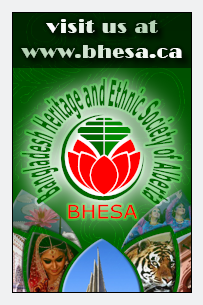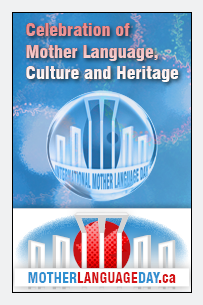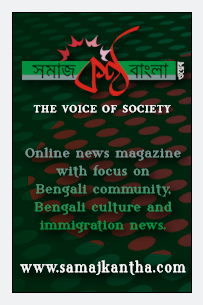Requirements not met
Your browser does not meet the minimum requirements of this website. Though you can continue browsing, some features may not be available to you.
Browser unsupported
Please note that our site has been optimized for a modern browser environment. You are using »an unsupported or outdated software«. We recommend that you perform a free upgrade to any of the following alternatives:
Using a browser that does not meet the minimum requirements for this site will likely cause portions of the site not to function properly.
Your browser either has JavaScript turned off or does not support JavaScript.
If you are unsure how to enable JavaScript in your browser, please visit wikiHow's »How to Turn on Javascript in Internet Browsers«.
Country News
Journey to Success: Celebrating Community and Culture in Edmonton
- Details

Even while living abroad, the fragrance of one’s homeland—Bangladesh—remains close to the heart. That sentiment was beautifully reflected during “Journey to Success,” a vibrant community gathering held on August 16 at Roundel Park in North Edmonton.
The lively event, hosted at Stall Area No. 3 of the park, drew more than 300 participants from over 100 families. The day was filled with activities, including a children’s painting competition, cultural programs, and opportunities for community engagement.
Speeches and Leadership
The program began with an opening speech by Abdul Haque Shamim, President of the organization. Community leaders and special guests—including Dr. Rafat Alam, Dr. Nazma Akhter, and others—shared their thoughts on building unity and fostering inclusion.
In Canada, the values of diversity, equity, and inclusion are central to community life, ensuring fair treatment and participation for all, especially those historically marginalized. Reflecting this spirit, the event also introduced two Muslim candidates for the upcoming Edmonton City Council elections.
A special highlight was the participation of Muktijuddha Delwar Jahid, veteran journalist and editor of Diverse Edmonton, who encouraged children in their drawing competition and inspired families with words of support.
Sponsors and Supporters
The event was made possible through the generous support of community sponsors:
Duke Hassan, Realtor
Prime Physio – Shariful Islam
Iqra and BD Mart Grocery – Din Islam
J2S President, Abul Haque Shamim
At the introduction phase, Sheikh Bassam Parez and councilor candidate Professor Dr. Farhan Mujahid also addressed the gathering.
Upcoming Community Projects
During her speech, project coordinator Dr. Nazma Akhter announced the launch of new initiatives, highlighting programs to strengthen education, wellness, and community spirit. These include:
Sunday School
Annual Conference
Menstrual Hygiene Awareness (for adults, youth, and children)
Camping Trips
Family Retreats
Hiking Programs
Football Matches
Badminton Tournaments
Annual Picnic
Physical Wellness Initiatives
Community Cleanliness Drives
Charity and Fundraising Projects
Annual Awards Gala Night
Picnic Highlights
The picnic brought families together with unique attractions such as:
Children’s Art & Drawing Displays
Traditional Snacks like Jhalmuri and Chanachur
Special Malai Tea
Fun, games, and shared laughter
✨ The Journey to Success event not only celebrated Bangladeshi heritage but also highlighted the values of inclusion, community building, and cultural pride—keeping the homeland’s spirit alive in Edmonton’s vibrant diaspora.
The interim government is on the path of silencing and depoliticizing the media - party-free elections are the only goal.
- Details
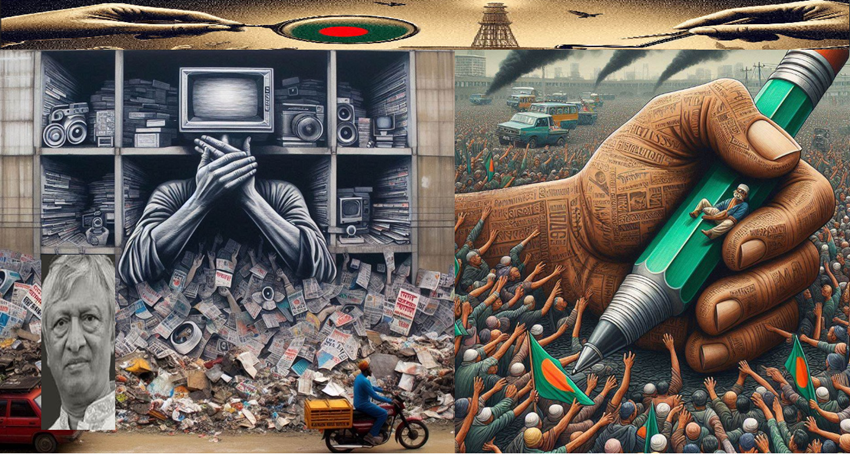
The interim government is on the path of silencing and depoliticizing the media - party-free elections are the only goal.
Delwar Zahid
In recent weeks, Bangladesh's interim government has taken alarming steps to stifle independent journalism and remove politics from public discourse. Only a free, fair, and transparent electoral process will restore public confidence as the nation prepares for the upcoming elections. This is essential to prevent the erosion of democratic values and ensure that citizens can freely express their voices in determining the country's future.
BNP's stance towards democratic process and national legacy
The Bangladesh Nationalist Party (BNP) has shown awareness of the precarious situation facing the country's democracy. Although the student-led protests have changed public sentiment, the underlying issues have not been resolved. BNP Secretary General Mirza Fakhrul Islam Alamgir, supported by leaders like Mirza Abbas, insisted that invoking the concept of a "second independence" under a Ziaur Rahman-style figure undermined the true legacy of the nation's liberation war. BNP leaders have rightly warned the interim government of the danger of dishonoring Bangladesh's historic freedom struggle.
Furthermore, Abbas spoke of the need to press for transparent elections. He warned that the people would not tolerate an unelected, extended government without a clear commitment to democratic principles. He called for dismissing politically motivated cases against opposition leaders as a gesture of justice and fairness. This move demonstrates the BNP's commitment to upholding democratic integrity and unity in Bangladesh and sends a critical message about the consequences of their stance on the erosion of the democratic process.
Increasing mob violence and the role of the interim government
On August 5, calls were made to counter the growing wave of mob violence across the country. Born out of demands for free speech and equality, the so-called "mass uprising" has turned into aggressive protests driven by fear and intimidation. From protests over test results to violent demands for change in judicial and political leadership, Bangladesh has witnessed an alarming shift towards Janata rule. This pattern of violence, supported by hidden agendas within the current government, is particularly troubling because it reflects a breakdown in order.
While the violence is widespread even in educational institutions - where incidents of harassment against teachers and students continue - the administration has shown limited response. Instead, student groups operate under the guise of maintaining security, furthering a culture of fear. Such violent disruptions have intensified calls for a responsible government response, possibly including deploying external security forces, to restore order. Without such intervention, the upcoming elections will risk instability and intimidation, undermining public confidence.
Editors' Council: Defending Press Freedom
Bangladesh Editors' Council has expressed deep concern about press freedom. Despite the government's commitment to protect journalistic freedom, newspapers face significant intimidation. Prothom Alo and the Daily Star, prominent newspapers, have faced threats, protests, and calls for increased security, revealing the severity of the current climate.
The Council condemned what it described as "mob trials," where groups try to intimidate and silence media outlets. Such tactics are not only an insult to journalism but also a direct attack on democratic principles. In an urgent appeal, the editorial board called on the government to intervene and ensure that the media can operate freely. They insist that disagreements with the press should be resolved through debate, not threats, violence, or coercion. The Council's position is clear: a commitment to press freedom is essential to upholding democratic values.
The President (Writer) of Bangladesh North American Journalists Network has called for an international investigation into the allegations of physical abuse and remand by showing arrests in various lawsuits, including mass cancellation of accreditation cards of professional journalists and murder cases of journalists without following the conventional legal process.
Upholding the core features of modern governance: At its core, a modern government should be defined by transparency, accountability, and respect for the rule of law. Effective management requires a system prioritizing public service delivery, open communication, and adaptable policies. Governments that embrace these qualities can maintain public confidence, provide stability, and increase resilience to challenges. Bangladesh's interim government must adopt these policies to gain legitimacy, especially in the upcoming elections, where the people demand an administration that represents them.
As Bangladesh navigates these tumultuous times, the interim government must adhere to democratic values, particularly by ensuring an environment where the media can operate freely, without opposition.
Bangladesh is at a dangerous crossroads. Endless conflict or long-term stability—what is the nation's destiny? An interview with freedom fighter and human rights advocate Delwar Jahid.
- Details
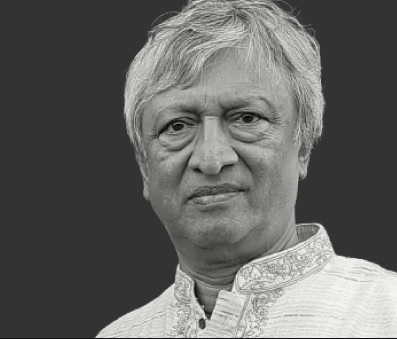
Bangladesh is at a dangerous crossroads. Endless conflict or long-term stability—what is the nation's destiny?
An interview with freedom fighter and human rights advocate Delwar Jahid.
Delwar Jahid, a Canadian of Bangladeshi origin, is a political scientist, human rights lawyer, and journalist. He is a senior research fellow at several universities and a distinguished sociologist with links to European media and academia. Since 2003, Zahid has worked at St. Paul's College, University of Manitoba, and Professor Dr. Dean E. co-founded the Canadian Conflict Resolution Network with Peachey. His notable research, "Arbitration - The Rural Mediation of Bangladesh," has been referenced in international publications, and he has long been an advocate for transitional justice and human rights reform in Bangladesh, contributing to the movement alongside such notables as Father RW Timm and Justice Kamal Uddin Hussain. He is the President of the Bangladesh North American Journalists Network and serves on the board of directors of the John Howard Society of Manitoba, Canada. In this interview, he shares his insights on the recent student-led movement in Bangladesh, the role of the interim government, and the implications for peace and stability in the region.
Q: Can you briefly describe the student-political landscape in Bangladesh leading up to the August 5 Revolution? What grievances mobilized the people, and what could this mean for the country's future?
Delwar Jahid: Bangladesh's July-August 2024 student movement is an unprecedented blow to equality. What began as an anti-quota student movement—an apolitical front formed by students demanding quota reforms—quickly became a broad non-cooperation movement that eventually gained the support of various political parties. This wave of activism catalyzed significant changes, including pressure on Prime Minister Sheikh Hasina, who eventually left the country.
The movement aims to advance fairness and justice in educational institutions. At its core, it seeks to eliminate all forms of discrimination, ensuring equal opportunities for students regardless of background. Students have taken a strong stand against racism, sexism, and various forms of prejudice, using mass protests to voice their demands. The change on August 5 represents a push for immediate reforms and a shift towards lasting social transformation in Bangladesh, with equality for all students as a central principle.
Question: What was the constitutional framework when the interim government assumed power with the recent political changes?
Delwar Jahid: Bangladesh is constitutionally constituted as a parliamentary democracy, which sets out a clear hierarchy and process for governance. The President is the ceremonial head of state, elected every five years by the Jatiya Sangsad (National Parliament). At the same time, the Prime Minister – appointed by the President – is the executive leader and head of government. This framework outlines checks and balances across branches, yet rapid political changes raise critical questions about stability.
During the transition, more clarity was needed about how constitutional norms were maintained, particularly the role of interim and executive powers. Going forward, the future of this transitional governance structure will likely depend on its commitment to open governance, reforms, and upholding democratic principles.
Legal experts are skeptical about the legitimacy of Yunus's government under Bangladesh's existing legal framework. The constitution of the People's Republic of Bangladesh, promulgated in 1972, must be strictly adhered to to form any government in Bangladesh. This constitution sets out clear procedures for ensuring legitimacy, democratic values, and the rule of law that reflects the people's will—steps that seem to have been ignored in this instance. Amid growing political unrest, questions surrounding the legitimacy of this government have intensified.
Historically, in times of political crisis, Bangladesh has appointed caretaker governments to oversee elections. However, the system was abolished in 2011 through the 15th Amendment, a controversial move contested by many political parties calling for its reinstatement. Attempts to establish government authority outside this constitutional framework undermine Bangladesh's democratic principles.
Recent Political Reaction:
BNP Secretary General Mirza Fakhrul Islam Alamgir (September 22, 2024) strongly criticized the approach of the interim government. He questioned the government's legitimacy, claiming it was detached from the people, noting that "no reform is sustainable without the participation of the people." Fakhrul argued that banning student politics would primarily benefit the "powers of darkness" and suggested that the government consult political leaders to gauge public sentiment on governance reforms. On September 21, Fakhrul described the interim government as lacking the "revolutionary" government drive necessary to bring about meaningful change and stressed that "the will of the people must be taken into account."
On October 31, Sajib Wazed Joy, chief adviser to the interim government, published a critical Facebook post targeting Muhammad Yunus, accusing him of a "power grab" and describing him as "Bangladesh's biggest fascist." Joy insisted that the Awami League, Bangladesh's oldest and largest political party, would not be undermined or banned. He criticized Yunus's government for alleged restrictions on media freedom, drawing parallels with past authoritarian regimes.
Way Ahead --- This government's future legitimacy is uncertain, plagued by political fragmentation and governance instability. Concerns persist over human rights abuses, restrictions on media freedom, and the possible resettlement of anti-independence figures. Meanwhile, proposed changes to the national anthem, flag, and constitutional principles in the name of reform are adding fuel to the ongoing political fire. The government's ability to move the country forward remains questioned as it grapples with growing opposition and unresolved legitimacy issues.
In conclusion, the current political environment in Bangladesh highlights deep-seated concerns about regime legitimacy, constitutional loyalty, and the role of public participation in shaping the country's future. Legal experts and political leaders have raised critical questions about the legitimacy of Yunus' interim government, especially in light of constitutional requirements and recent political upheavals. As the country grapples with these issues, calls for genuine democratic engagement and a return to constitutional principles grow louder. This period is likely to prove crucial for Bangladesh, as its leaders face the challenging but essential task of reconciling political divisions, respecting democratic norms, and prioritizing people's will. How the government chooses to navigate this path will define its legacy and the future trajectory of democracy in Bangladesh.
Interviewer M. Rahman
Mob Justice: Law Enforcement in Bangladesh as a Silent Spectator to Injustice and Jungle Law
- Details
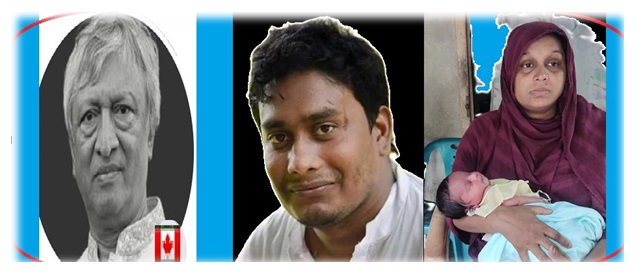
By Delwar Jahid
Mob justice, or vigilantism, refers to instances where groups of people take the law into their own hands to punish those accused of crimes, bypassing legal procedures and due process. In Bangladesh, this practice has become increasingly concerning, particularly since the student-led protests in August 2024. These protests have drawn widespread attention to issues of security, governance, and public accountability.
This phenomenon is not new. In August 2018, a movement led by students, triggered by the death of two students in a road accident in Dhaka, saw thousands take to the streets to demand safer roads and better enforcement of traffic laws. While these protests were largely peaceful, they highlighted widespread dissatisfaction with the rule of law in Bangladesh and revealed deep frustrations over corruption and a perceived lack of accountability among those in power.
Following these protests, there was a notable increase in reported incidents of mob justice across the country. Many citizens, disillusioned with the legal system, began to take matters into their own hands, believing that justice would not be served through official channels.
The Perceived Effectiveness of Mob Justice
Proponents of mob justice argue that it acts as a deterrent to crime, particularly in communities where law enforcement is seen as weak or corrupt. When there is a lack of trust in the police or the justice system, people may feel compelled to take justice into their own hands, believing this instant form of punishment to be more effective than the slow and often inefficient legal system.
The Negative Consequences of Mob Justice
However, the consequences of mob justice are overwhelmingly negative. It often leads to unjust punishment and retaliatory violence, sometimes resulting in the death of innocent people. Decisions are made in the heat of the moment, without proper investigation or evidence, denying the accused the opportunity to defend themselves and leading to miscarriages of justice.
Mob justice perpetuates a cycle of violence and fosters an environment of fear and insecurity. It undermines the rule of law, weakens institutions meant to uphold justice, and often exacerbates conflict, leading to greater social unrest.
A Case in Point: The Death of Abdullah Al Masood
A recent example illustrates the dangers of mob justice. Two days after the death of Abdullah Al Masood, a former leader of the Rajshahi University Chhatra League, no case had been filed regarding the attack that led to his death. On September 7, Masood, aged 31, was attacked near Rajshahi University and handed over to the police with serious injuries. He died later in the hospital. Despite a video showing Masood speaking after the attack, no witnesses have come forward, and the police have yet to receive a formal complaint from his family. Masood's family expressed concerns about legal action due to fears of reprisal. The Vice-Chancellor of Rajshahi University stated that the university was considering filing a case on the family's behalf. Masood, who became a father just days before his death, had previously been attacked in 2014, losing a leg and suffering serious injuries. His family remains in shock and fears they may never see justice. (Source: Prothom Alo, September 9, 2024)
The Need for Police Reform
In response to the growing concerns over mob justice and law enforcement's ineffectiveness, the Home Affairs Advisor recently informed the UNDP resident representative that a committee would soon be formed to outline the approach, process, and leadership for police reform. UNDP representative Stephen Lilal emphasized the importance of these reforms to build public confidence, reduce criticism of the police, and offered technical and financial support for the process. (Source: Daily Our Time, September 9, 2024)
Despite these promises of reform, the interim government has failed to protect minority communities, opposition party members, and even law enforcement officials themselves. Under the watchful eyes of law enforcement agencies, police stations have been looted, police officers killed, and government assets plundered, all while acts of vandalism have been disguised under the garb of military action.
Conclusion
While mob justice may seem like a quick solution to perceived crimes, history shows that it is ultimately ineffective and dangerous. It undermines the rule of law, perpetuates violence, and often leads to the wrongful punishment of innocent individuals. To effectively combat crime, Bangladesh must strengthen its legal and judicial institutions, improve law enforcement, and address the root causes of public distrust in the justice system. Only by doing so can the country build a more just and equitable society where all citizens feel secure and confident in the rule of law.
Author: Delwar Jahid, President of the Bangladesh North American Journalists Network, researcher, and analyst on human rights and law.
Subcategories
- Additional Resources:
- Additional Resources:
- Agro-Ocean
- Bangabandhu Development and Research Institute
- Bangladesh North American Journalists Network
- Bangladesh Heritage and Ethnic Society of Alberta (BHESA)
- Coastal 19
- Delwar Jahid's Biography
- Diverse Edmonton
- Doinik Ekattorer Chetona
- Dr. Anwar Zahid
- Edmonton Oaths
- Mahinur Jahid Memorial Foundation (MJMF)
- Motherlanguage Day in Canada
- Samajkantha News
- Step to Humanity Bangladesh







